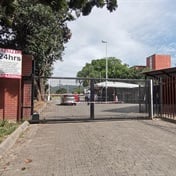
The government has been told to boldly use its power to fast-track the expropriation of land in urban areas, which has been moving at a snail’s pace over the years and is sowing divisions on the ground.
Furthermore, all state-owned in urban land must be made available to build houses for the poor.
These are among the recommendations of a high-level advisory panel chaired by former president Kgalema Motlanthe.
It was tasked to review the country’s legislation over the past 21 months.
The panel crisscrossed the country to source input from the communities, experts and other role-players.
It also pointed to the failure by the state to use provisions in the Constitution that allow compensation to be below market value in particular circumstances.
“The lack of well-situated land for urban settlement remains a stark legacy of apartheid planning and discrimination.
"Well-situated state-owned land needs to be made available for housing for the poor, and well-situated privately owned land targeted for expropriation,” reads the report, which steered clear of making any noise about a constitutional amendment.
There has been a strong push to have the Constitution amended to allow for expropriation without compensation to address the slow and ineffective pace of land reform.
The report says that while this may be the case, the budget for land reform is at an all-time low, at less than 0.4% of the national budget, with less than 0.1% set aside for land redistribution.
“Rather than recommend that the Constitution be changed, the panel recommends that the government should use its expropriation powers more boldly, in ways that test the meaning of the compensation provisions in Section 25 (3), particularly in relation to land that is unutilised or underutilised,” reads the final report to be handed over to the Speakers’ forum this evening.
It flags the fact that those who do receive redistributed land are made tenants of the state, rather than owners of the land.
This spits in the face of constitutional rights to equitable access, tenure security and restitution.
“These rights are not being adequately promoted, enforced and protected.
"Instead, they appear to be under attack from policies and practices that redirect the benefits of land reform to potential political alliances with specific elites.”
The panel was advised by experts that the need to pay compensation has not been the most serious constraint on land reform in South Africa to date.
The “serious stumbling blocks” to land reform are the increasing evidence of corruption by officials, the diversion of the land reform budget to elites, lack of political will, and lack of training and capacity.
In its recommendations, the panel proposes urgent amendments to existing laws to ensure that these rights are effectively promoted, enforced and upheld.
This includes the Restitution of Land Rights Act and the Communal Property Associations Act.
It also raises concern about recent laws that have been used to dispossess vulnerable South Africans of customary land rights in former homelands, and proposes the protection of people who bore the brunt of the Land Acts and forced removals, including those living in former homelands.
“They deserve particular protection and redress,” the report reads.
It proposes that the Interim Protection of Informal Land Rights Act be urgently amended and properly enforced and that other laws that have been interpreted to enable land grabs, such as the Traditional Leadership and Governance Framework Act, Mineral and Petroleum Resources Development Act and Ingonyama Trust Act, “be explicitly made subject to the Interim Protection of Informal Land Rights Act and amended in other ways as well”.
In acknowledging the plight of farm dwellers, the panel recommends that the Extension of Security of Tenure Act (and the Labour Tenants Act) be slightly amended and properly enforced, particularly their “neglected redistributive components”.
Another proposal for law-makers is the introduction of a new land framework bill that will focus on the right to equitable access to land, with a focus on pro-poor redistribution.
To date, there is no law that defines the meaning of equitable access to land or sets targets and reporting requirements in relation to redistribution.
This, says the panel, has enabled the elite to profit disproportionately from land reform.
Evidence presented to the panel shows how land reform policy has drifted from its initial “pro-poor focus to one marked by signs of elite capture.”
Implementation has also been dysfunctional.
“It has also meant that people see the restitution process, which is based on the loss of provable historical rights, as their only hope of getting land. As a result, restitution has been overrun with claims it cannot accommodate.
"The problems that currently beset restitution cannot be addressed without effective, forward-looking redistribution taking place at scale.”
This Framework Bill provides for the establishment of the Office of a Land Rights Protector, to provide more accessible forms of redress to rural people when things go wrong.
It proposes a new law – the Land Records Act – which will be a crucial component of a land administration system that provides “robust forms of recourse” to ordinary people seeking to assert and protect their land rights.
The panel says without it, other components of land reform are unlikely to deliver enforceable land rights to beneficiaries.
“As long as the majority of South Africans have no recorded land rights, they remain vulnerable to eviction and dispossession.
"They also remain largely invisible to the formal economy.”




 Publications
Publications
 Partners
Partners








